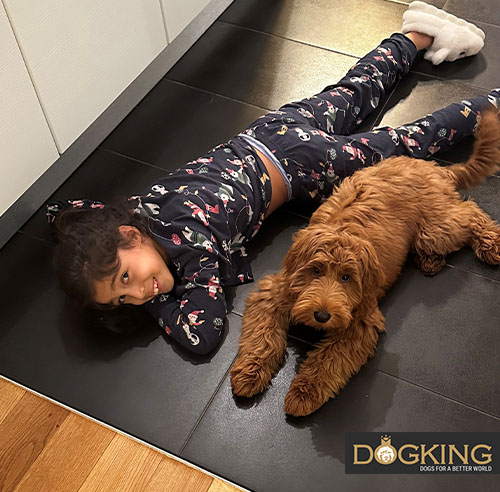Why dogs yawn
Boredom or stress are some of the causes of canine yawning.

YAWNING IN DOGS
Approximate reading time: 6 minutes
Although humans and dogs are very different, the truth is that there are some behaviours that we have in common. This is the case with yawning, that slow, deep breath that we take by opening our mouth wide. If you share your life with a furry friend, you've probably noticed that they yawn too. Yes, the doggy yawn is very similar to the human yawn, with a wide jaw opening and a slow exhalation that may be accompanied by a sound. We know that people yawn out of boredom, sleepiness or hunger, but why do dogs yawn?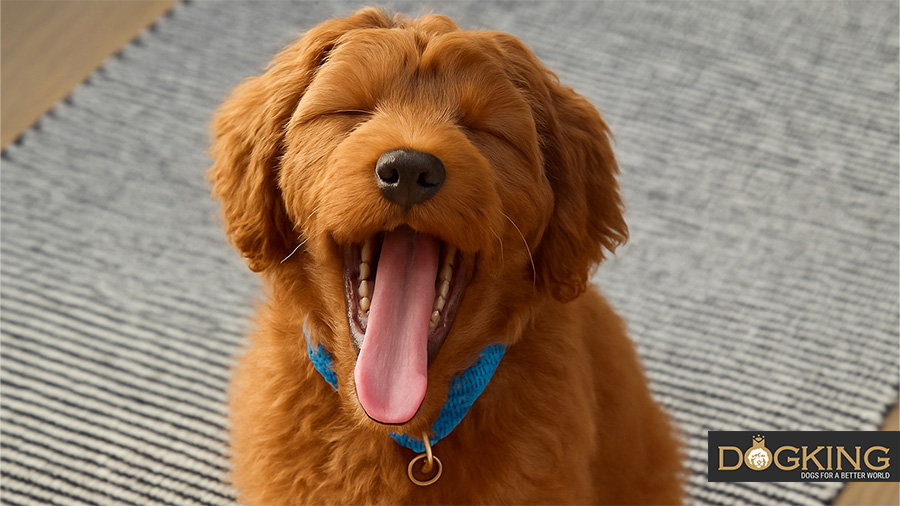
Several scientific studies have tried to answer this question, and the truth is that, unlike humans, yawning in dogs can be a sign of laziness or drowsiness, but it can also be a way of communicating with us and other dogs. It is known that dogs can yawn in response to positive, neutral or even negative stimuli.
Table of contents
Causes of yawning in dogs
Yawning is a curious mechanism in people and dogs. When your pet yawns a big yawn, their heart rate increases, which helps to irrigate the brain and oxygenate the lungs. This lowers carbon dioxide levels, resulting in a renewal of energy and a decrease in stress.
Based on this reaction that yawning generates in the canine body, there are different reasons that can cause yawning. The most important thing is to look at the situation that preceded your dog's yawn to see if it is a reaction to a harmless stimulus, such as sleep or tiredness, or if there is an unpleasant situation that is causing the yawning. Yes, dogs can also yawn out of stress or distress.
Let's take a look at the reasons why dogs yawn.
1. Due to sleepiness or tiredness
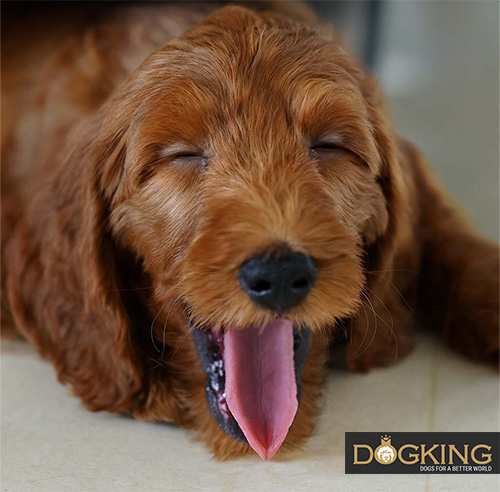
The most common reason for your dog to yawn is sleepiness or exhaustion. This type of yawning is usually isolated and is very easy to identify, as it is accompanied by a sluggish attitude, such as when your dog has just woken up from a long sleep or after an intense walk or training session.
In any situation in which your dog has been subjected to an energetic, physical or mental strain, it is normal for them to yawn and there is no need to worry. There are many theories about the role of yawning in these cases, one of them being to try to wake them up (as yawning oxygenates the brain). It could also be the opposite: trying to relax in preparation for sleep, as yawning lowers your stress and calms you down.
2. Out of boredom
If your dog yawns when you have been playing the same game for a long time, when you don't pay attention to them or if they are simply lying on their bed doing nothing, the cause could be boredom. If they only do this occasionally, it's not a cause for concern, but take it as a sign and offer your furry friend something interesting to do at that time. Change the game if they’re tired of the one you're playing, take them for a walk for fun, or practice some training exercises with them.
However, if you notice that your dog yawns a lot and is always bored and unmotivated, don't let it go. An under-stimulated dog can suffer from stress, depression and various behavioural disorders. For your pet to be happy and fulfilled you need to provide them with a varied lifestyle, physical exercise, mental stimulation and attention and pampering from you. A good idea is to train their sense of smell with a sniffing carpet or buy them a Kong toy, which is filled with food and is very entertaining for dogs.
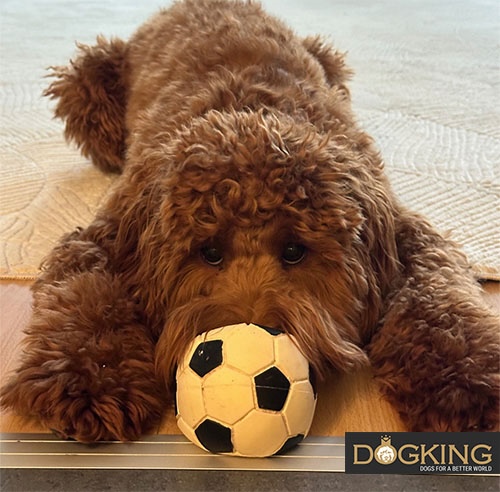
3. Stress and stress-related yawning

There is one type of yawning in dogs that you should pay close attention to. If your dog yawns very deeply and slowly and yawns one yawn after another, it is probably caused by a negative stimulus that is upsetting them.
When a dog yawns because of stress or feeling overwhelmed, they may lick their lips, sneeze, turn their head or shake their head. There are many situations that can provoke this reaction in your dog, such as a noisy environment, a visit to the vet, excessive or forced contact, or if you scold them intensely. When faced with an unpleasant or overly intense circumstance, your dog will react with deep, chained yawns in an attempt to calm down.
4. For joy
Sometimes, when they feel great excitement and happiness, dogs yawn to channel their energy and control their excitement. Don't be surprised if your dog greets you with a yawn when you come home from work – for them it's the happiest moment of the day! When yawning out of excitement, you'll notice that your furry friend's whole body emanates joy, with intense tail wags and even barks of pure happiness.
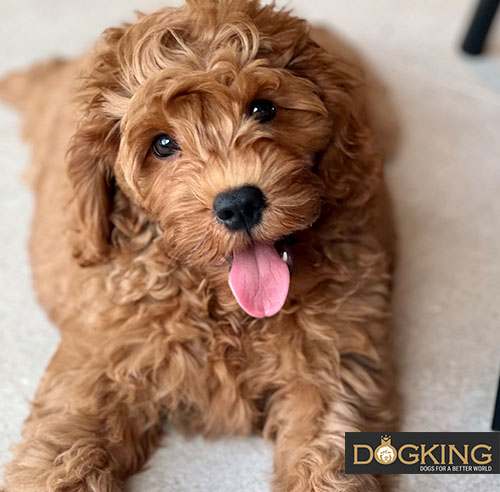
5. To avoid conflict
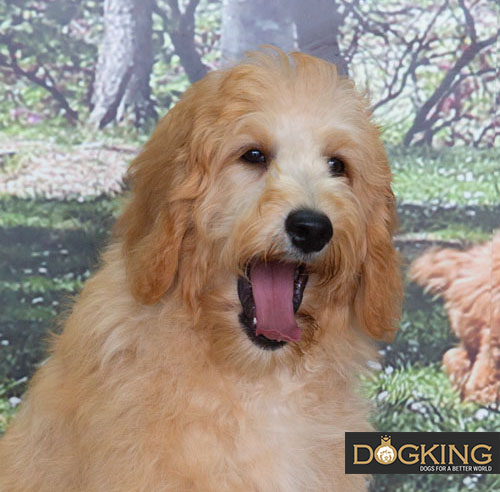
Have you ever seen your dog yawn at another dog? This curious behaviour has a very clear function in the communicative codes between dogs: to express to the other dog that they have no hostile intentions towards them. When your furry friend yawns at another dog, they are actually sending them a pacifying message that they are not going to do anything bad to them. This yawn is usually accompanied by a look that reinforces this expression of disinterest and calm.
6. By imitation
The bond that people have with their pets is incredible, and good proof of this is the fact that dogs yawn by imitation when their owners do so. And watch out, because it's impossible to fool them. If you fake a yawn and expect your dog to follow you, you're in for a treat. This imitation mechanism only occurs with spontaneous yawns. It is not well known why dogs yawn when their owners yawn, but what is known is that they only imitate them, not other people. It's just another example of the special connection between a human and a dog – interesting and heartwarming!
